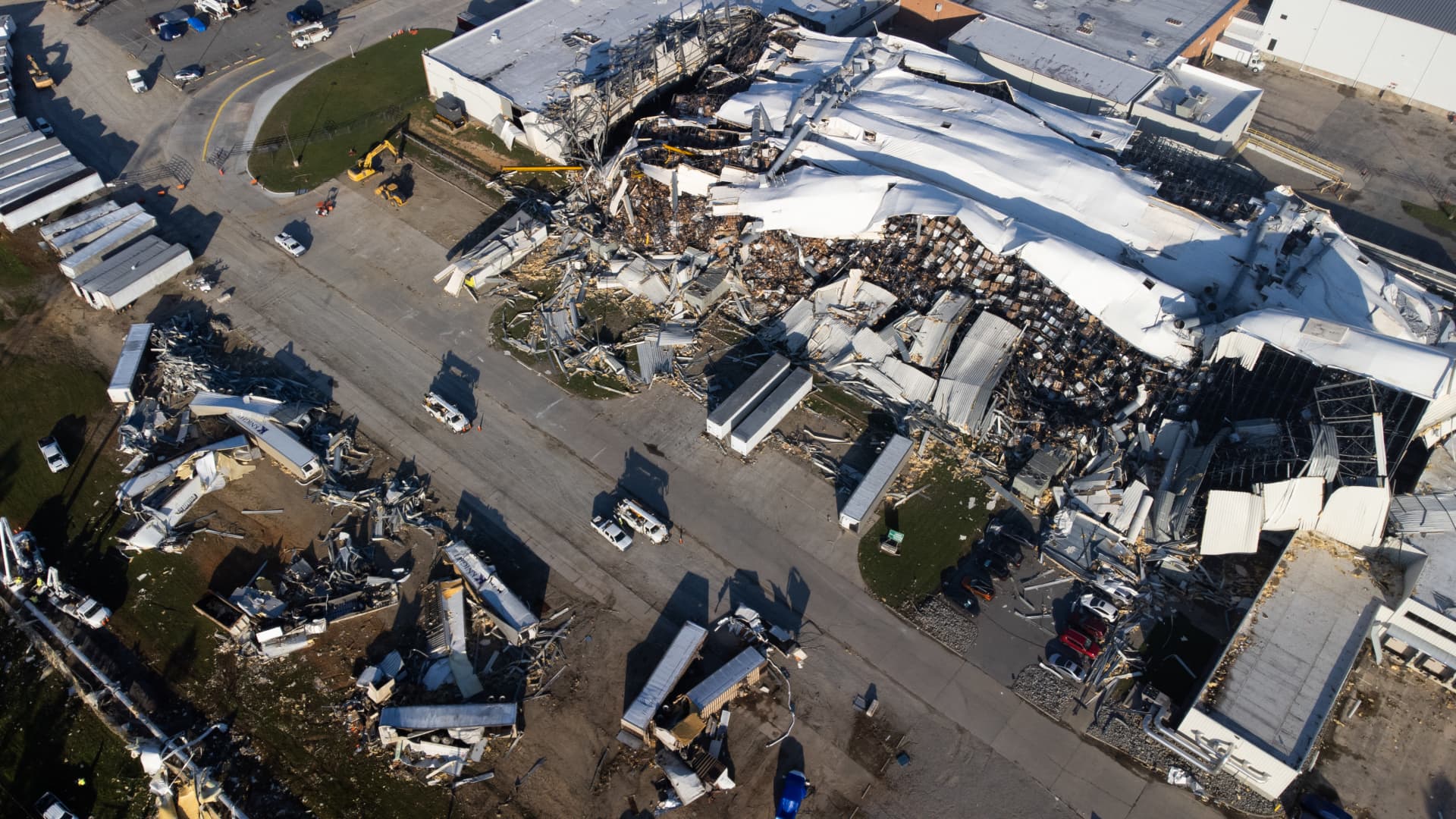Pfizer on Friday said there does not appear to be major damage to the drug manufacturing areas of its plant in Rocky Mount, North Carolina, after a tornado hit the facility two days earlier.
The plant supplies nearly 8% of all sterile injectable medicines used in U.S. hospitals, including anesthesia, analgesia, therapeutics, anti-infectives and neuromuscular blockers. Pfizer added that the facility manufactures about 25% of the company’s sterile injectables.
An initial assessment found that the tornado primarily damaged a warehouse facility, which stored raw materials, packaging supplies and finished medicines waiting to receive quality assurance, according to Pfizer.
The drugmaker did not say whether it expected that damage to lead to new drug shortages or exacerbate any current ones – a concern for some health experts.
The damage comes as the U.S. is already facing an unprecedented shortage of medicine, ranging from ADHD pills to pain medicine to injectable cancer therapies. Those shortages are driven by manufacturing quality control issues and surges in demand, among other factors.
The North Carolina plant is closed while Pfizer and both local and federal authorities further evaluate the damage.
The 3,200 Pfizer employees and contractors who worked at the plant were able to evacuate and reach storm shelters before the tornado hit, the company noted.
The drugmaker said it is working to move medicine products to nearby sites for storage and identify sources to replace damaged raw materials and supplies.
Pfizer is also exploring alternative manufacturing locations in the U.S. and internationally through its own sites and partners.
The company said it’s “committed to rapidly restoring full function to the site, which plays a critical role in the U.S. healthcare system.” It’s one of 10 Pfizer manufacturing sites in the country.
Pfizer also noted that it is working closely with Food and Drug Administration Commissioner Robert Califf, North Carolina Gov. Roy Cooper and other state, local and federal officials.
Califf said in a Twitter post Thursday that the FDA is “following the situation closely.”
